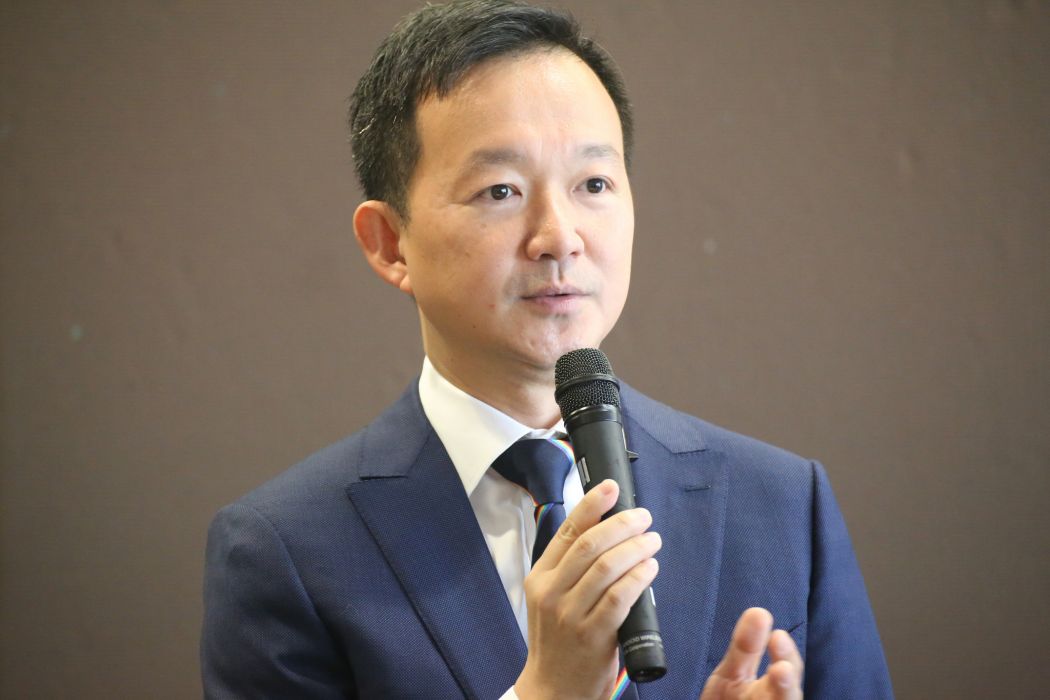Opposition towards LGBT+ legal rights in Hong Kong is at a historic low, according to a recent survey by the Chinese University of Hong Kong (CUHK).
The survey was commissioned by the university’s Sexualities Research Programme and involved a sample of 1,058 Chinese-speaking people aged 18 or above, who were contacted between September 16 and 25 last year.

The results – released on Tuesday – showed that 60 per cent of the respondents said they agreed or very much agreed that there should be legal safeguards against discrimination based on sexual orientation in Hong Kong. It marked an increase from 56 per cent of respondents in a similar survey conducted by the Equal Opportunities Commission (EOC) and CUHK in 2016.
Twenty-seven per cent said they were neutral on the question of LGBT+ legal protection. The remaining 12 per cent said they disagreed or very much disagreed, representing a significant decrease from 35 per cent in the 2016 EOC-CUHK survey.
In another question, 49 per cent of the respondents said they agreed or very much agreed that homosexual people should be able to marry their partner. Twenty-eight per cent stayed neutral on the topic of same-sex marriage, while 23 per cent said they disagreed or very much disagreed with it.

Around 80 per cent of respondents aged 18 to 34 said they supported the right to legal protection against discrimination based on sexual orientation in Hong Kong, as well as same-sex marriage.
The survey also found that there has been an increase in public support for businesses that are LGBT+ inclusive. Only 18 per cent said that they would have a negative view of a business if it sponsored the city’s annual gay pride parade.
Only 11 per cent said they would have a more negative view of a business if it chose to provide benefits to gay people.

Suen Yiu-tung, assistant professor of the Gender Studies Programme and founding director of the Sexualities Research Programme, said that the survey contradicted claims that Hong Kong society was not ready for LGBT+ legal protections.
“It is not our belief that public opinion shall be the lead indicator as to whether social minority shall be granted human rights protection, but as long as the government, or politicians, or policymakers [continues] to make claims about social climate and public attitudes on LGBT+ legal rights, it is our belief that this study provides data against unsubstantiated claims,” he said.
Suen said there were several reasons behind declining opposition towards LGBT+ legal rights, including increased contact with members of the LGBT+ community, issues, and recent court cases related to LGBT+ rights.
Suen said the study had debunked myths that opposition to LGBT+ rights arose from particular groups in society. “Age, religion and family values do not translate into [a] wholesale rejection of protection of LGBT+ legal rights,” he added.

People Power lawmaker Ray Chan, who is openly gay, said the results of the survey showed that support for anti-sexual discrimination laws in society was at a record high.
“It was unquestionable that the majority of the Hong Kong public has expressed their view in support of equal rights for sexual minority, and there is already [a] societal consensus on legal protection for sexual [minorities] in Hong Kong,” he said.
“The government can no longer use the excuse that there is controversy on the topic to delay the legislative process for enacting legal protections for sexual [minorities] in Hong Kong. We urge that the government should legislate against discrimination on the ground of sexual orientation, and set up [a] mechanism to recognise same-sex relationships. There is no time to wait,” he added.
EOC Chair Ricky Chu commended the professionalism of the Sexualities Research Programme in conducting the study and producing the report.
“The report is informative and sheds new insights into the public attitudes towards legal rights and protection of LGBTI individuals in Hong Kong. It will certainly provide [a] valuable reference for the EOC. We would study the issues raised in the report in our assessment of discrimination issues in the relevant areas in future,” he said.
Hong Kong Free Press relies on direct reader support. Help safeguard independent journalism and press freedom as we invest more in freelancers, overtime, safety gear & insurance during this summer’s protests. 10 ways to support us.

